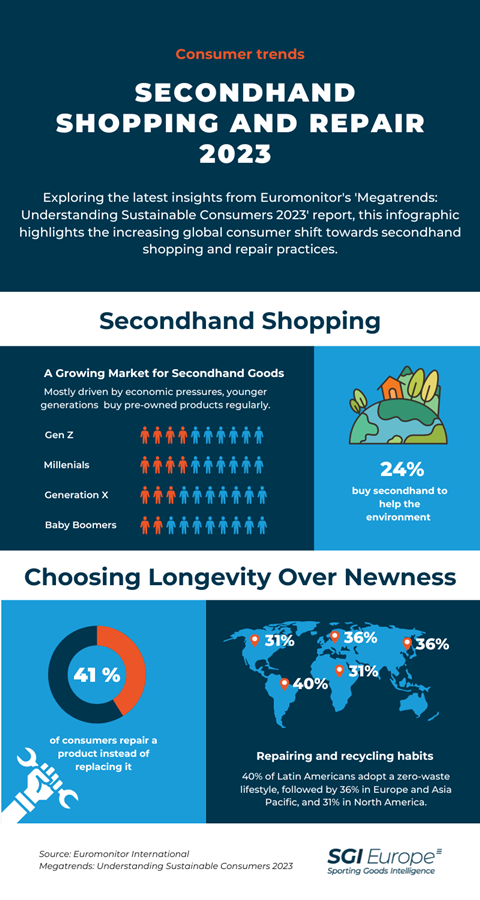Our latest infographic, informed by Euromonitor International’s ‘Megatrends: Understanding Sustainable Consumers 2023’ report, dissects the emerging consumer behaviors globally. It sheds light on the growing trend of secondhand shopping and the commitment to repair over replacement.
The year 2023 has witnessed a significant transformation as consumers increasingly turn to secondhand goods and repair services, a trend thoroughly documented in Euromonitor International’s latest report. This movement isn’t just a niche phenomenon but a widespread change in consumer behavior taking root globally, with 24% of consumers worldwide now purchasing secondhand goods to reduce their environmental footprint.
At the forefront, younger generations, with 40% of Gen Z and Millennials, are engaging with secondhand shopping frequently, primarily motivated by financial constraints and a penchant for sustainable living. This group’s engagement is not just about saving money; it’s a conscious choice to embrace an eco-friendly lifestyle, where even premium items are circulated in the secondhand market.
The analysis goes further, revealing that repairing and extending the life of goods is becoming an increasingly popular choice, with 41% of consumers preferring to fix rather than replace. This repair mindset is widespread, with significant participation in Latin America, Europe, and Asia Pacific—regions that are leading the way in recycling and zero-waste practices.
Companies that can innovate and adapt to these changing consumer preferences—those that offer sustainable, repairable, and secondhand options—are likely to thrive in this evolving market. Sustainability becomes not just a preference but an expectation among a growing segment of consumers.

Is your brand ready for the sustainable consumer?
Eco-conscious consumers are reshaping the sports and outdoor industry. Discover the latest trends and strategies to stay ahead in our special series.
>> Find out more



















